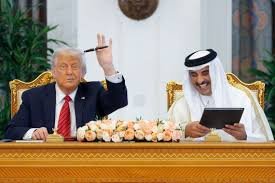The Making of a Mogul: Early Years in Queens
Born on June 14, 1946, in Queens, New York, Donald Trump was shaped by his father Fred Trump’s cutthroat real estate empire. While many know of his privileged upbringing, few realize the young Trump attended New York Military Academy at 13 after his parents grew concerned about his rebellious behavior. There, he honed his competitive instincts, becoming captain of the baseball team while developing what teachers called “a knack for manipulating rules to his advantage.” His first business venture wasn’t in real estate but in collecting empty soda bottles from construction sites for deposit money—an early lesson in profit-seeking that would define his career.
The future president nearly avoided the family business entirely, briefly considering film school after being fascinated by celebrity culture during weekend trips to Manhattan. His 1968 graduation from Wharton coincided with his first controversial deal—exploiting a legal loophole to avoid drafting for Vietnam through medical deferments (bone spurs diagnosis) while classmates shipped out to war. This pattern of rule-bending would resurface throughout his career.
Building the Donald Trump Brand: Triumphs and Bankruptcies
Trump’s takeover of his father’s company in 1971 marked the beginning of his self-mythologizing. The 1976 Grand Hyatt deal—his first Manhattan project—used $70 million in tax abatements secured through political connections, establishing his playbook of leveraging government for private gain. While the 1980s saw him become a tabloid fixture with Trump Tower and Atlantic City casinos, insiders knew the empire was built on shaky foundations. His Taj Mahal casino opened in 1990 only after he strongarmed junk bond financiers into risky terms, leading to six corporate bankruptcies by 2009.
A little-known 1984 incident reveals his negotiating style: When the city refused to grant zoning for Trump Plaza, he secretly bought air rights from Tiffany & Co. by offering to build their flagship store—then charged competitors millions to use the same airspace. This ruthless creativity made him billions while leaving contractors and small businesses unpaid, a practice that resulted in over 3,500 lawsuits before he entered politics.
Reality TV and the Reinvention of Donald Trump
The 2004 launch of The Apprentice transformed Trump from a brash businessman to a household name. What viewers didn’t see was the show’s original concept—a documentary about his actual company—until producer Mark Burnett realized Trump’s natural showmanship. The “You’re fired!” catchphrase was ad-libbed, and the boardroom scenes were heavily scripted to hide Trump’s limited attention span for details. Behind the scenes, NBC paid him up to $3 million per episode while covering his failing casino debts—a symbiotic relationship that revived his brand.
This period also saw Trump cultivate political connections, hosting 2005 meetings with Bill and Hillary Clinton where they discussed real estate deals—an irony given their later rivalry. His flirtation with politics began in 1987 (Oprah interview) and 2000 (Reform Party), but it was his 2011 birther conspiracy crusade against Obama that laid groundwork for his populist base.
The 2016 Election: Defying All Odds
Trump’s presidential campaign was initially dismissed as a publicity stunt. Few knew his team used hyper-targeted Facebook ads (via Cambridge Analytica) to micro-target disaffected voters in swing states, while his rallies were carefully staged for viral moments. The Access Hollywood tape crisis nearly ended his campaign until FBI Director Comey’s October surprise about Clinton’s emails—a twist some insiders believe Trump allies may have prompted through backchannels.
His victory speech, delivered without prepared remarks, shocked even his inner circle. Transition chaos followed: He reportedly asked why the U.S. couldn’t use nuclear weapons (prompting aides to remove briefing codes), while foreign leaders scrambled to understand this unconventional leader.

Donald Trump Presidency: Norms Shattered Daily
The Trump White House operated like a reality TV production, with staffers calling it “The Apprentice: West Wing Edition.” His infamous 2018 Helsinki press conference with Putin—where he sided with Russia over U.S. intelligence—was preceded by a private two-hour meeting with no American notetakers, leaving even his Secretary of State in the dark. The Mueller investigation uncovered at least 10 instances of potential obstruction, but Trump’s real legacy was his transformation of the Republican Party into a populist movement.
Policy wins like tax cuts and judicial appointments were overshadowed by his Twitter storms. Aides revealed he dictated tweets during early morning “executive time” (often spent watching Fox News), with staff scrambling to implement policies based on his impulsive social media declarations. His handling of COVID-19—downplaying the threat while claiming “total authority”—became a defining failure, yet he still received 74 million votes in 2020.
The Big Lie and January 6th
Trump’s refusal to concede the 2020 election wasn’t spontaneous. Texts show his team planned “stop the steal” messaging before polls closed. The January 6th rally was promoted with “wild” promises, and while he didn’t personally storm the Capitol, his 187 minutes of inaction as violence unfolded led to bipartisan condemnation. Recently uncovered documents reveal aides warned him days earlier that some attendees were armed—making his “fight like hell” rhetoric even more damning.
Post-Presidency: Legal Woes and 2024 Comeback Bid
Facing 91 felony charges across four cases (election interference, classified documents, hush money, and Georgia RICO), Trump has turned legal jeopardy into campaign fuel. His 2024 strategy relies on delaying trials until after the election, when he could potentially pardon himself. Meanwhile, his Truth Social platform—despite losing $58 million in 2023—remains a megaphone for attacking rivals.
A telling detail: When the FBI raided Mar-a-Lago for classified documents, they found nuclear secrets stored next to his high school trophies and a framed Time magazine cover—a metaphor for his blurred sense of legacy and vanity.
Trumpism’s Lasting Impact
Whether Trump wins in 2024 or not, he’s permanently altered American politics. His base’s distrust of institutions, embrace of conspiracy theories, and “retribution” rhetoric now dominate GOP politics. International allies report preparing for possible U.S. withdrawal from NATO if he’s reelected, while his tariffs-first trade policy has been adopted by Biden in modified form.
The man who once said “I could stand in the middle of Fifth Avenue and shoot somebody” without losing voters now tests whether that extends to courtroom convictions. His ultimate achievement may be proving how fragile democratic norms are when confronted with shameless ambition.
Go to main page


